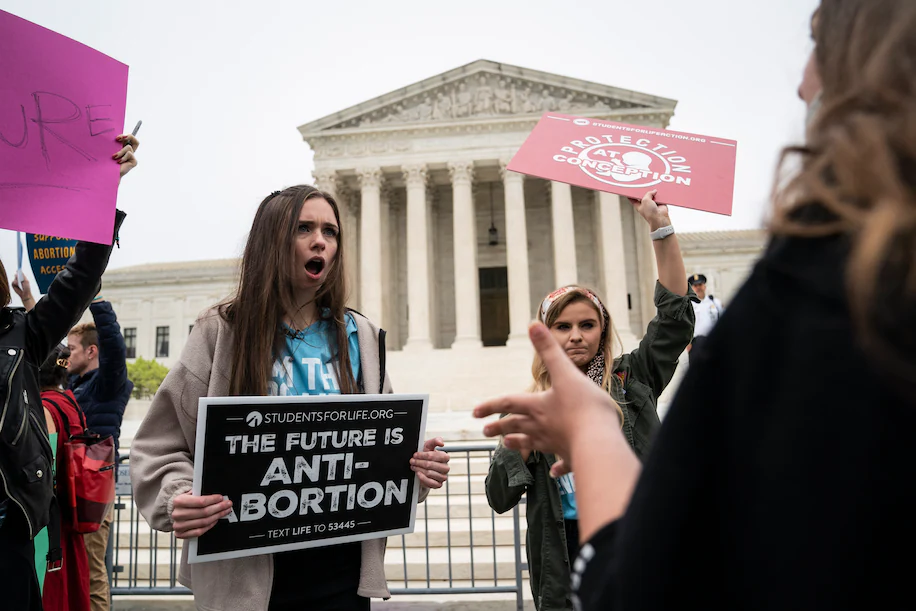When the SCOTUS ruling that would overturn Roe was leaked, my first thoughts went to how adoption services nationwide would improve. Given the Republican’s vociferously pro-life stance, I assumed there would be some form of federal financial subterfuge employed that would siphon allocations to state adoption services to make adopting a more enticing choice; I was wrong. I stupidly forgot that a woman having ANY choice—including that of adoption—was poisonous to conservative morality.
Though there were 13 (very red) states with trigger laws that would immediately make abortion illegal once the SCOTUS ruling was cast, I would find that NONE of those same states had a similar trigger law when it came to assisting the mothers (or adoptive families) through increased statewide funding for such a thing. In essence, Republicans are all about the unborn child being thrown into this world, but when it comes to the quality of that life … sorry kid, you're on your own.
When you look at the numbers/statistics, this line of thinking becomes nothing short of cruel.
According to the Department of Health and Human Services, almost half of all adopted children live in families with an annual household income at or below 200% of the poverty level. And as much as I hate to say it, life doesn’t work on a program that allows a family to survive on love alone. I have no doubt that those adoptive families (AF) truly care for the children they are taking care of, but that level of poverty makes raising a child properly unsustainable.
Because we now live in a world where the lack of access to abortions has hindered the reproductive rights of tens of millions of women, we can only expect to see these numbers rise. Gretchen Sisson, a sociologist, and researcher at the Advancing New Standards in Reproductive Health program at the University of California San Francisco estimates that new abortion bans enacted post-Roe will increase the number of infants available to adopt each year by as many as 10,000.
Of course, an increase of this capacity without dramatic increases in funding will also cause more systemic issues to emerge—especially when considering that per the CDC, for decades following Roe’s passage, the percentage of children who were put up for adoption declined.
Doris Houston, the director of the Center for Adoption Studies and an associate professor of social work at Illinois State University is concerned that adoption agencies that closed or significantly cut back as adoptions declined over the last decades will build back too quickly and with little regulation. “During the adoption process, case workers from agencies conduct home background studies with multiple home visits to make sure there are no red flags,” she said. These background checks would be severely diminished. This will directly impact the ability to oversee the conditions the child is being raised in.
So, how does Colorado compare?
Just as bad, if not worse.
Colorado is among just a handful of states where adoption assistance rates are set entirely by counties. There have historically been vast disparities in how much counties pay, if they pay anything at all, according to a 2017 report from the state’s Child Protection Ombudsman. As recently as 2022, the rates ranged from $180.29 in Baca County to $1,015.05 a month in Dolores County. Across counties, federally subsidized adoptions in Colorado each received about $4,095 last fiscal year—among the lowest rates nationwide, according to federal data. And though Colorado overhauled its rules on adoption assistance after the 2017 report came out and is working to standardize the process statewide, there’s still no new money available for adoption assistance.
It must be said that though I honestly love the blue hue of our state, this is unacceptable …
The reason I am so passionate about this element of the pro-choice movement is that when my girlfriend and I were in our late teens, she became pregnant, and we went the route of adoption. It was the late 90s in Nowhere, Wyoming, and the only options we had were through either the Mormon or Catholic church; with each having its own systemic flaws. Eventually, we were lucky enough to get the phone number of an attorney in Los Angeles who set us up with a gay couple—to be honest, I never knew just HOW lucky until I wrote this piece.


So your argument is instead of taking accountability and responsibility for the life created, let’s put it in the state?
How about proper education and realignment of values so that people are more responsible? Your solution is not accountability, but death of a human life because, it’s an inconvenience? But you have the audacity to speak about cruel? How droll.